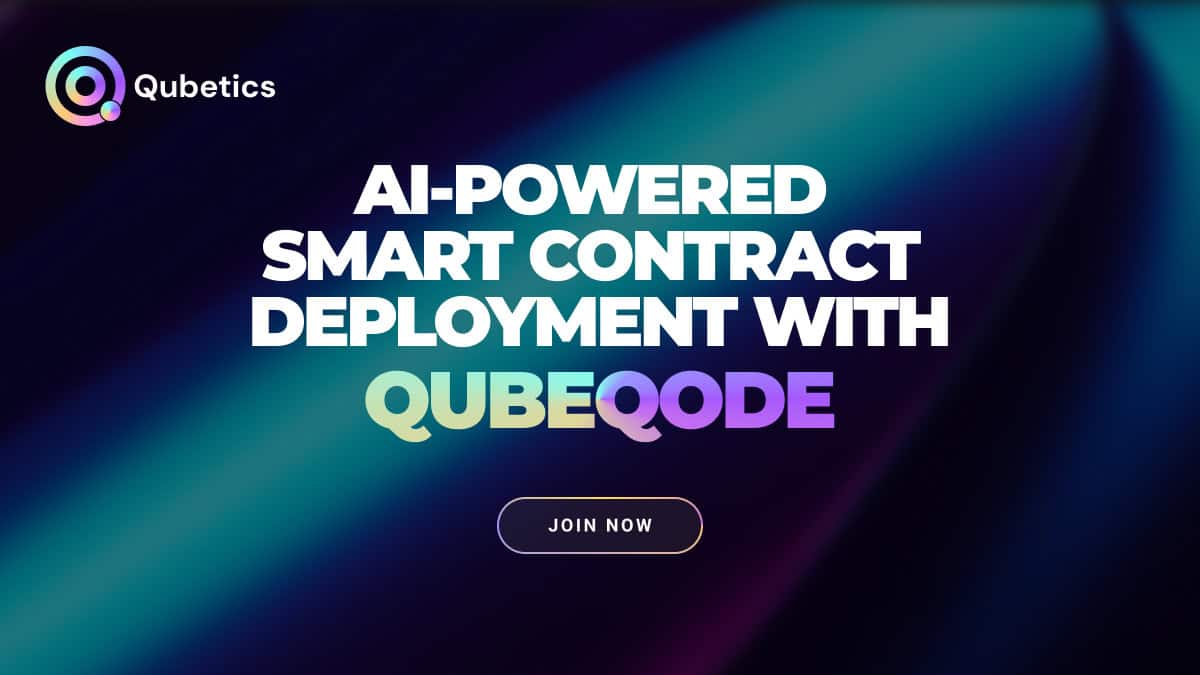What’s the Next Big Thing in Crypto?
Each year, the cryptocurrency landscape witnesses the emergence of new projects that claim to bring transformative changes. While many of these initiatives may fizzle out, others manage to significantly alter the dynamics of digital asset management. With the advancements in blockchain technology, investors are constantly on the lookout for opportunities that promise substantial returns. However, differentiating between mere hype and genuine innovations can be challenging. In this context, Qubetics stands out among the most promising crypto Initial Coin Offerings (ICOs), alongside other notable projects like Ondo and Gala, which have each established their own unique niches within the digital ecosystem. These projects offer diverse approaches to blockchain adoption, such as Web3 aggregation, tokenization of real-world assets, and innovations in blockchain gaming. Qubetics, with its impressive presale performance, Ondo’s efforts to integrate traditional finance with decentralized finance (DeFi), and Gala’s reinvention of the gaming industry, are all making waves as viable alternatives to conventional investment avenues.
Qubetics: The Future of Web3 Aggregation
Qubetics distinguishes itself as a pioneering entity in the blockchain space, being the first Web3 aggregator aimed at simplifying interactions across various blockchain networks. One of the significant challenges in the crypto realm has been fragmentation, which often compels users to switch between multiple blockchains, wallets, and protocols. Qubetics addresses this issue by providing a cohesive and user-friendly interface that allows investors, developers, and businesses to engage with different blockchain ecosystems seamlessly. Currently, Qubetics is in the 24th stage of its presale, with its token, $TICS, priced at $0.0976. The presale has already raised over $14.7 million, with more than 497 million tokens sold and a growing base of over 22,500 token holders. Analysts predict that $TICS could potentially rise to $0.25 by the end of the presale, with ambitious forecasts suggesting it may exceed $10 after the mainnet launch. A significant feature of Qubetics is the QubeQode IDE, a toolkit designed to simplify blockchain application development. This tool is akin to WordPress for blockchain, allowing businesses and individuals—regardless of technical expertise—to create decentralized applications (dApps) quickly. For instance, a freelancer could easily develop a blockchain-based invoicing system, while a startup might implement a tokenized rewards program in a matter of days, showcasing the potential for widespread Web3 adoption.
Ondo: Bringing Traditional Finance to DeFi
In contrast to the erratic price swings common in many crypto projects, Ondo Finance adopts a more stable strategy by linking traditional financial assets with the DeFi landscape. The platform specializes in the tokenization of real-world assets (RWAs), specifically U.S. Treasuries, thereby bringing these assets onto the blockchain. This innovative approach allows crypto investors to access traditional financial instruments while remaining within the blockchain framework. By providing yield-generating stable assets, Ondo has established a distinct position in the DeFi market. Investors seeking reliable and passive income options are increasingly looking towards Ondo’s offerings, which provide a transparent and regulated means to achieve stable returns. Unlike many DeFi platforms that depend on speculative lending and staking, Ondo enhances the credibility of blockchain finance by integrating with established economic systems.
Gala: The Leader in Blockchain Gaming
Gala Games is a trailblazer in the blockchain gaming sector, empowering players to have true ownership of their in-game assets. In traditional gaming environments, platforms control all aspects of in-game economies; however, Gala changes this paradigm by enabling players to buy, sell, and trade their digital items freely. This approach has birthed a new revenue model where gamers can monetize their experiences instead of merely spending on microtransactions. With a growing suite of blockchain-based games, Gala is establishing a solid reputation for prioritizing player engagement. Both developers and players are attracted to Gala’s model, which liberates them from the constraints of conventional gaming systems. Users enjoy complete control over their digital assets, positioning Gala as a formidable player in the Web3 gaming arena.
Conclusion
The momentum behind cryptocurrency adoption shows no signs of waning, with projects like Qubetics, Ondo, and Gala demonstrating the transformative potential of blockchain technology in finance and gaming. Qubetics is redefining Web3 integration, Ondo is effectively merging traditional finance with DeFi, and Gala is pushing the boundaries of what is possible in blockchain gaming. The impressive presale figures for Qubetics, the growing appeal of Ondo’s real-world asset tokenization, and Gala’s expanding player-driven economy all indicate a significant impact on the market. For investors seeking promising crypto ICOs, Qubetics presents a compelling opportunity, while Ondo and Gala showcase practical applications and long-term growth prospects that are hard to overlook.
FAQs
1. What distinguishes Qubetics from other crypto initiatives?
Qubetics stands out as the first Web3 aggregator, aimed at unifying interactions across various blockchain networks. It also offers QubeQode IDE, a tool designed to streamline blockchain application development for users with varying technical skills.
2. How does Ondo Finance incorporate real-world assets into the DeFi space?
Ondo Finance tokenizes assets such as U.S. Treasuries, allowing crypto investors to engage with traditional financial instruments while remaining within the blockchain environment.
3. What sets Gala apart in the blockchain gaming sector?
Gala enables players to have genuine ownership of in-game assets, allowing for free trade and fostering a player-driven economy. This model enhances player engagement and gives gamers greater control over their virtual possessions.

